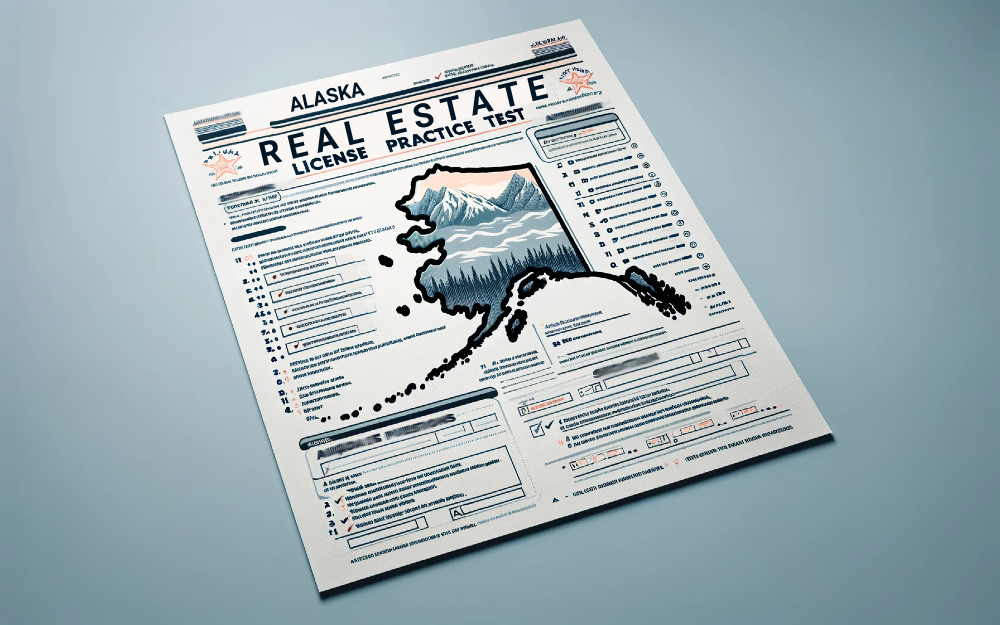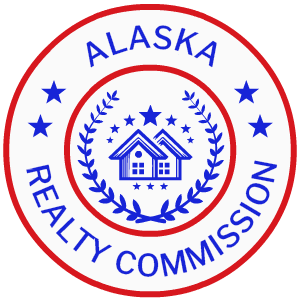
Determine your answer, then click the arrow to see the correct response.
Which of the Following Is a Required Disclosure in Alaska When Selling a Residential Property?
A) Previous owner's contact information
B) Presence of lead-based paint
C) Neighborhood crime statistics
D) Utility costs for the past year
Correct Answer: B) Presence of lead-based paint
Explanation: Federal law requires disclosure of lead-based paint hazards for homes built before 1978.
In Alaska, Which of the Following Is NOT Considered a Fiduciary Duty of a Real Estate Agent?
A) Loyalty
B) Obedience
C) Accounting
D) Marketing
Correct Answer: D) Marketing
Explanation: Fiduciary duties include loyalty, obedience, accounting, confidentiality, disclosure, and care. Marketing is a task but not a fiduciary duty.
Which of the Following Best Describes a 'Dual Agency' Relationship?
A) A broker representing both the buyer and seller in the same transaction
B) Two brokers from the same firm representing the buyer and seller, respectively
C) A broker representing two buyers in separate transactions
D) A broker representing both commercial and residential clients
Correct Answer: A) A broker representing both the buyer and seller in the same transaction
Explanation: Dual agency occurs when one broker represents both parties in a transaction, which requires informed consent from both parties.
Sarah, a Real Estate Agent, Lists a Property for a Seller. She Later Discovers a Significant Defect in the Property That the Seller Did Not Disclose. What Should Sarah Do?
A) Ignore the defect since the seller did not disclose it
B) Inform potential buyers of the defect
C) Only disclose the defect if asked directly by a buyer
D) Inform the seller and wait for their instruction
Correct Answer: B) Inform potential buyers of the defect
Explanation: Agents have a duty to disclose all known material defects to potential buyers.
What Is the Statutory Redemption Period in Alaska Following a Foreclosure Sale?
A) 3 months
B) 6 months
C) 9 months
D) 12 months
Correct Answer: B) 6 months
Explanation: In Alaska, the statutory redemption period after a foreclosure sale is six months.
Which Type of Listing Agreement Provides the Most Protection for the Real Estate Agent in Terms of Earning a Commission?
A) Open listing
B) Exclusive agency listing
C) Net listing
D) Exclusive right-to-sell listing
Correct Answer: D) Exclusive right-to-sell listing
Explanation: An exclusive right-to-sell listing guarantees the agent a commission if the property sells during the listing period, regardless of who finds the buyer.
In Alaska, a Landlord Must Return a Tenant's Security Deposit Within How Many Days After the Lease Termination?
A) 10 days
B) 14 days
C) 30 days
D) 45 days
Correct Answer: B) 14 days
Explanation: Alaska law requires landlords to return the security deposit within 14 days after the tenant vacates the property.
What Type of Ownership Includes the Right of Survivorship?
A) Tenancy in common
B) Joint tenancy
C) Tenancy by the entirety
D) Community property
Correct Answer: B) Joint tenancy
Explanation: Joint tenancy includes the right of survivorship, meaning the surviving owners automatically inherit the deceased owner’s share.
A Property Is Listed for $250,000. A Buyer Makes an Offer of $240,000, Which the Seller Counteroffers at $245,000. The Buyer Then Accepts the Counteroffer. What Is the Status of the Contract?
A) There is no contract
B) There is a valid and binding contract
C) The contract needs further negotiation
D) The contract is contingent on financing
Correct Answer: B) There is a valid and binding contract
Explanation: Once the counteroffer is accepted, a valid and binding contract is formed.
What Is the Purpose of the Alaska Real Estate Recovery Fund?
A) To compensate agents for unpaid commissions
B) To fund real estate education programs
C) To reimburse consumers for losses caused by licensee misconduct
D) To support real estate development projects
Correct Answer: C) To reimburse consumers for losses caused by licensee misconduct
Explanation: The Alaska Real Estate Recovery Fund is designed to protect consumers and provide compensation for losses due to the unethical or illegal actions of real estate licensees.
